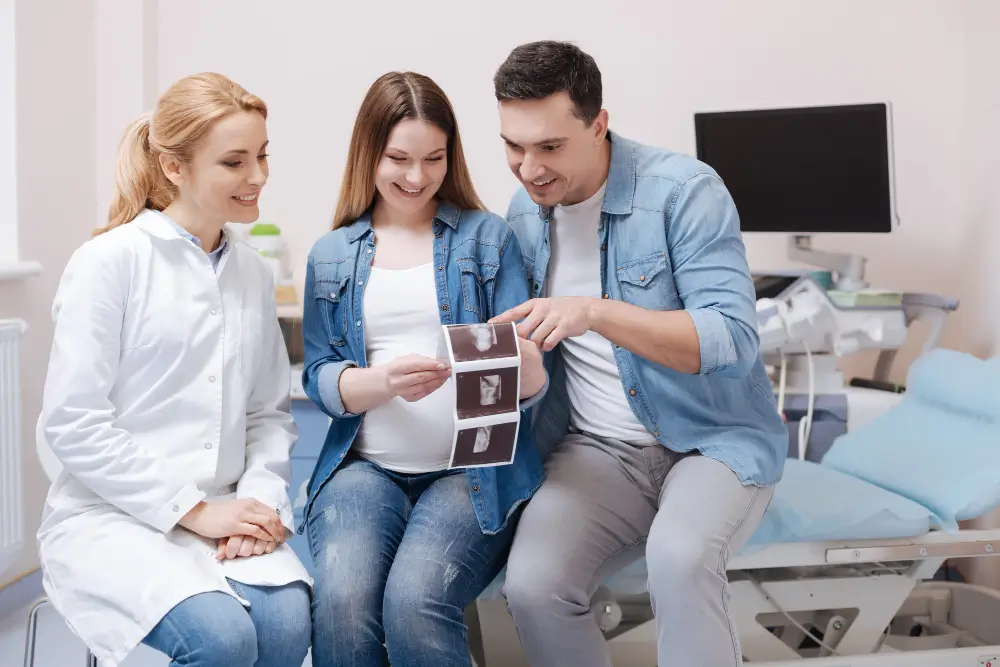In 2025, the demand for egg donors in the United States continues to rise as more individuals and couples rely on assisted reproduction and surrogacy to build their families. With the increasing use of IVF treatments, delayed parenthood, and growing acceptance of donor programs, fertility clinics are facing a noticeable shortage of qualified egg donors nationwide.
Recent data highlights the strength of this trend. The U.S. donor-egg IVF services market is projected to reach approximately USD 416–420 million in 2025, according to Nova One Advisor and Grand View Research. Across North America, the egg donation market is valued at around USD 0.66 billion in 2025 and is expected to grow at a 10.06% CAGR from 2025–2033 (Market Data Forecast). On a global scale, the egg donation industry is estimated at USD 3.05 billion in 2025, with continued growth in the years ahead (Metatech Insights).
Despite this rapid market expansion, the availability of diverse and well-matched donors remains limited. As of 2021, nearly 10,000 births per year in the U.S. were from donor-egg IVF—yet the demand for suitable donors still exceeds supply. Many agencies report longer waiting times and increasing requests for specific donor profiles, leading to greater reliance on frozen donor-egg banks and enhanced recruitment programs.
At Surrogacy4All, we’re meeting these challenges head-on. Our agency maintains a large and diverse donor database, ensuring intended parents have access to a wide range of backgrounds and characteristics. By streamlining the matching process and focusing on transparency, we help reduce waiting times and make egg donation accessible, ethical, and stress-free for families in 2025 and beyond.

To review free our database of 1,000+ egg donors from a variety of ethnic, educational and physical appearance, click on the link below
Start by completing our online application form. Once received, our team reviews your details to confirm eligibility and schedules a phone or video consultation.
You’ll then go through medical and psychological screening to ensure you’re ready—physically and emotionally—for the process.
After approval, we create your donor or surrogate profile, including non-identifying details such as health history and personal background. This helps intended parents learn about you and make an informed choice.
When your profile is live, our team begins the matching process. We consider compatibility, expectations, and preferences to ensure a comfortable and meaningful connection. Once both parties agree, Surrogacy4All arranges an introductory meeting to confirm the match.
After a match, both sides review and sign legal agreements that protect everyone’s rights and clearly define responsibilities. Once the legal clearance is complete, medical procedures can begin.
Our team provides ongoing support and communication through every stage—from application to match and beyond—ensuring you always feel informed and cared for.
At Surrogacy4All, every journey is built on trust, respect, and compassion. We’re here to guide you at every step toward a safe and successful match that changes lives forever.
The egg donation process begins when a potential donor fills out an application form. This includes details about personal background, medical history, lifestyle, and education.
Once the application is received, the fertility clinic or agency reviews it to ensure you meet the basic eligibility criteria, such as:
If you meet these initial requirements, you’ll be invited to move forward with medical and psychological screenings.
Before becoming an approved donor, you’ll undergo a thorough evaluation to ensure you’re physically and emotionally ready for the process. This includes:
These evaluations help confirm that you are a healthy, suitable donor for intended parents.
Once approved, your profile (with non-identifying information) is shared with intended parents. They review donor profiles to find a match based on physical traits, personality, education, or other preferences.
When a match is made, both the donor and intended parents move forward with the legal and medical steps required for the donation cycle.
Before any medical treatment begins, both parties sign a legal contract prepared by reproductive law attorneys. This agreement clearly defines:
The legal agreement ensures that all parties are fully protected and informed before moving forward.
Once the legal process is complete, the donor starts a cycle of fertility medications to stimulate her ovaries to produce multiple eggs.
This phase typically lasts 10–14 days and includes:
During this period, donors are closely monitored to ensure their safety and optimal egg development.
When the eggs reach maturity, a trigger shot is administered to prepare them for retrieval. About 36 hours later, the egg retrieval procedure takes place.
After retrieval, donors typically rest for a short time and can resume light activities within a day or two.
Once the eggs are retrieved, they are fertilized in the lab with sperm from the intended father or a sperm donor to create embryos.
The embryos are then cultured for several days before one or more are transferred into the intended mother’s or surrogate’s uterus. Remaining viable embryos may be frozen for future use.
After donation, donors attend a follow-up appointment to ensure a full recovery. Any minor side effects, like bloating or cramping, usually subside within a few days.
Donors also receive compensation for their time, effort, and commitment, as outlined in the agreement.
At Surrogacy4All, we truly value the generosity and time of every egg and sperm donor who helps intended parents build their families. We offer fair and ethical compensation for your time, effort, and medical procedures involved in the donation process.
Compensation is not a payment for eggs or sperm, but a reimbursement for your time and expenses. The amount depends on factors such as experience, health profile, and location.
All compensation terms are discussed clearly before the process begins, following ASRM guidelines for transparency and compliance.


Your rights, privacy, and wellbeing are our top priorities. Before starting, you’ll receive a clear legal agreement outlining all terms and protections, including:
You’ll also have access to independent legal counsel to ensure complete understanding of your rights.
Surrogacy4All follows all ASRM, FDA, and state regulations to protect donor welfare. Our process ensures:
Becoming a donor is a life-changing act of kindness. At Surrogacy4All, we make sure you’re treated with fairness, care, and complete legal protection—because your generosity helps create families and futures.

Start by completing our online application form. Once received, our team reviews your details to confirm eligibility and schedules a phone or video consultation.
You’ll then go through medical and psychological screening to ensure you’re ready—physically and emotionally—for the process.
After approval, we create your donor or surrogate profile, including non-identifying details such as health history and personal background. This helps intended parents learn about you and make an informed choice.
When your profile is live, our team begins the matching process. We consider compatibility, expectations, and preferences to ensure a comfortable and meaningful connection. Once both parties agree, Surrogacy4All arranges an introductory meeting to confirm the match.
After a match, both sides review and sign legal agreements that protect everyone’s rights and clearly define responsibilities. Once the legal clearance is complete, medical procedures can begin.
Our team provides ongoing support and communication through every stage—from application to match and beyond—ensuring you always feel informed and cared for.
At Surrogacy4All, every journey is built on trust, respect, and compassion. We’re here to guide you at every step toward a safe and successful match that changes lives forever.
To avoid the hassle of choicing an egg donor, and face the uncertainty of making embryos that may not be good qualtity, try our day 5 guaranteed blastocyst program with 3 guaranteed embryos, only $15,000 per embryo. Click on link for details:
“Surrogacy4All made my egg donation journey easy and rewarding. They were always available to answer any questions and made sure I was taken care of. The compensation was fair, and the experience was life changing.” –Irene O. Egg Donor
Most egg donor agencies in the USA are owned and run by lawyers and ex-egg donors.
When you are trying to have your baby, would you rather get reproductive medicine support from a doctor or a lawyer?
Obviously, a physician!
We are a Physician Owned and Managed Agency. We will work jointly with your IVF clinic on the medical support that will be given to you and your egg donor throughout the donation process, to help maximize a successful pregnancy.
This is why so many Intended Parents love our agency!
Becoming a parent is a journey filled with hope, challenges, and profound emotions. For many, the road to family includes navigating the world of egg donation—an experience that can feel daunting and deeply personal. Whether you’re a married couple facing IVF setbacks or an LGBTQ+ couple seeking to grow your family, choosing the right egg donor (and, if needed, a surrogacy partner) is about more than credentials and costs; it’s about finding trust, transparency, and care during one of life’s most pivotal moments.
Each year, the U.S. sees hundreds of thousands of ART/IVF cycles. The latest national summaries from SART/CDC report ~396,000 total cycles in 2022 and even higher activity in 2023, with a substantial share involving donor oocytes/embryos. In short: tens of thousands of U.S. cycles now use donated eggs each year.
Unfortunately, not every “agency” operates with the same standards. Red flags:
When in doubt, verify through official sources and your fertility clinic.
Agencies/establishments that manufacture, store, test, or distribute human reproductive tissues (HCT/Ps) must register with FDA and meet 21 CFR Part 1271 requirements. Registration updates are due annually (December), and unregistered operations risk warning letters and enforcement. Interstate shipping of gametes/embryos squarely triggers FDA jurisdiction. U.S. Food and Drug Administration+2eCFR+2
Key takeaways
If frozen eggs are shipped across state lines, FDA rules apply.
Clinics receiving tissue from unregistered sources can face enforcement, too. U.S. Food and Drug Administration
New York requires a tissue bank license for organizations that procure/process/store/
California regulates tissue banks (including ART facilities and banks serving California patients) under Health & Safety Code, Chapter 4.1, overseen by CDPH Laboratory Field Services (LFS). Out-of-state entities operating in CA are within scope. Penalties can include administrative fines and injunctions. CDPH+2California.Public.Law+2
Agencies that only arrange fresh donor cycles (and do not collect/store/ship frozen eggs) typically don’t need their own tissue bank registration, because the licensed IVF clinic performs the medical procedures and holds the regulatory obligations for tissue handling. Referring donors across state lines for a fresh cycle is generally lawful as long as the agency itself does not handle tissues—however, the clinic must be properly registered/licensed. (Always confirm with your clinic and counsel.)
| State | Likelihood a fresh-cycle donor matching agency needs its own tissue license | Notes |
|---|---|---|
| New York | High (or partner with an NYS-licensed tissue bank if any tissue activity is involved) | NY DOH closely regulates reproductive tissue activity. Wadsworth Center+1 |
| California | Moderate–High (depends on activities performed and where patients are served) | CDPH LFS regulates in-state and out-of-state entities operating in CA. CDPH |
| Maryland | Lower/unclear for pure matching | Clinical/lab components clearly regulated; pure matching less explicitly addressed in public guidance. |
| Florida | Higher if medical services are provided | Health facility/clinic regulations may apply depending on the footprint of services. |
Laws change. Always verify with your clinic and check current federal/state rules.
Yes—if (and only if) it’s properly licensed/registered. A single integrated program reduces duplicated contracts, timelines, and finger-pointing between vendors, and it can streamline coordination across: donor screening, legal, escrow, embryo logistics, and surrogate matching.
From your prior criteria and documentation, examples include:
Indian Egg Donors (licensed via DGA) — FDA-registered HCT/P establishment + NYS tissue bank licensure; fresh & frozen donor options and integration with surrogacy services.
EggDonors4All (licensed via DGA) — Same regulatory coverage via DGA; fresh & frozen donors; integrated surrogacy pathways.
Note: Always cross-check the current FDA HCT/P listing and the NYS Tissue Resources database (and clinic affiliations) before you commit. U.S. Food and Drug Administration+1
Fresh Egg Donor Cycle: $18,000–$35,000 (donor compensation, agency, legal; clinic costs are separate)
Frozen Egg Cohort (≈6 oocytes): $16,000–$24,000 (for one cohort + shipping/fees)
Contact us to decide which is better for you – fresh or frozen eggs. We have both options available
Your exact costs depend on clinic protocol, location, insurance, and whether you need preimplantation genetic testing (PGT), ICSI, additional cycles, etc.
Start with your clinic. Which agencies/banks do they routinely work with?
Verify licensing. FDA registration (21 CFR 1271) and state tissue bank requirements where applicable. U.S. Food and Drug Administration+1
Decide fresh vs. frozen. Timeline, cost, and donor availability may push you one way or the other.
Assess support. Look for human, responsive teams with clear points of contact—and real addresses.
Total budget. Model base costs + “what if” add-ons (meds, travel, legal, re-cycles).
One-agency integration. If you also need a surrogate, an integrated (properly licensed) program can reduce risk and friction.
At Surrogacy4All, we welcome healthy, responsible women who want to help intended parents build their families. To qualify as an egg donor, you should generally:
Our team will guide you through every step to confirm eligibility and ensure a comfortable, safe donation process.
Egg donor compensation in the USA varies depending on several factors, including experience, location, and medical background. At Surrogacy4All, first-time egg donors typically receive $5,000–$10,000 per donation cycle, while experienced donors may earn more.
Compensation reflects your time, effort, and commitment, not payment for eggs themselves. All related medical and travel expenses are fully covered by Surrogacy4All or the intended parents, ensuring a transparent and ethical process.
Egg donor anonymity depends on the type of arrangement you choose and the intended parents’ preferences. At Surrogacy4All, we offer:
We respect your privacy and comfort level and ensure that all personal information remains confidential and protected under legal agreements.
Our job is to listen, to connect the dots between your needs, and to determine how we can best help you have your baby. If you’re asking how much does it cost for a surrogate, we’ll walk you through every step of the process to ensure there are no surprises.
To make an appointment with one of our counselors or physicians, please call (212) 661-7673 or email info@surrogacy4all.com. We look forward to hearing from you.
Secret Guide to Minimizing Surrogacy Costs
All Rights Reserved to Surrogacy4all
RESOLVE: The National Infertility Association, established in 1974, is dedicated to ensuring that all people challenged in their family building journey reach resolution through being empowered by knowledge, supported by community, united by advocacy, and inspired to act.
ASRM is a multidisciplinary organization dedicated to the advancement of the science and practice of reproductive medicine. The Society accomplishes its mission through the pursuit of excellence in education and research and through advocacy on behalf of patients, physicians, and affiliated health care providers.
Welcome to the Parent Guide: Starting Life Together, for children and their caregivers. Whether you are a mother or father (through birth, adoption, or foster care), a grandparent, partner, family friend, aunt or uncle with parenting responsibilities, the Parent Guide has information to help you through the FIRST FIVE YEARS of your parenting journey.
Path2Parenthood (P2P) is an inclusive organization committed to helping people create their families of choice by providing leading-edge outreach programs.
The FDA is a part of the Department of Health and Human Services.
Each day in America, you can trust the foods you eat and the medicines you take, thanks to the U.S. Food and Drug Administration.